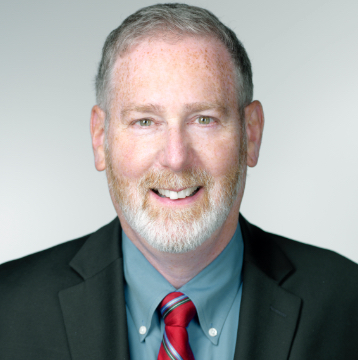May 15, 2020
Behind the Scenes – A Renewable Energy Victory in Michigan
Electric utility regulatory issues put many people to sleep. They can be legally dry and technically complicated. However, for ELPC’s clean energy legal and policy wonks, these issues are often truly interesting, and we dig in deep.
Most importantly, what ELPC’s team then accomplishes before the courts, legislatures and public utility regulatory commissions really does make a difference for the public’s interests.
Case in point: Here’s the story behind ELPC’s major new win before the Michigan Public Service Commission in DTE’s utility rate case.
Simple narrative: DTE requested a $351 million rate increase, which the Commission cut by 47 percent, saving consumers nearly $163 million. That’s good.
Larger, more complex story: ELPC attorneys Nikhil Vijaykar and Margrethe Kearney succeeded in gaining changes to DTE’s planning process that should both save consumers even more money going forward and avoid pollution, thereby improving public health and our environment.
DTE runs one of the worst electricity distribution grids in the country. The utility admits that it’s in the bottom quartile for outages. DTE has very poor reliability indicators.
According to DTE, it should have been given its full requested rate increase in order to make grid improvements. But, why reward a utility company, which runs one of the worst distribution grids, with a blank check? And, why penalize consumers by leaving them with a critically outdated grid incapable of handling modern distributed energy resources, community solar energy + battery storage, and electric vehicles?
ELPC had a better solution than DTE’s in order to benefit consumers and the environment.
Utilities typically fund capital improvements by proposing a plan to the Commission, spending the money, and then charging consumers for the project costs plus an annual profit – i.e., the “rate of return.” Too often, the utility gets the money whether or not the project actually does improve service.
Michigan is exploring what’s called “performance-based ratemaking” with the idea that capital improvements should actually improve things. ELPC attorneys presented our legal case that the Michigan Public Service Commission should require that spending approved for DTE should improve current services and also prepare DTE’s outdated grid for the modern clean-energy world.
The Commission “got it” and put some teeth in the requirements for DTE. All Michigan utilities must periodically submit a distribution system plan, and DTE’s next plan must develop, track and report its performance on a set of metrics, as well as its progress towards improvement targets. Instead of just building costlier new substations and transformers, DTE’s distribution system plan must also include “non-wires alternatives projects,” bringing in clean energy resources like solar energy + battery storage, energy efficiency and demand response. Those changes can produce large long-term environmental and economic benefits for DTE ratepayers.
ELPC and our allies are proud that we helped reduce DTE’s rate hike by $163 million, but that’s only part of the story. Margrethe, Nikhil, and our coalition allies helped change the planning standards and utility regulatory culture for the future in ways that can result in even larger savings and bigger benefits. That’s an important ELPC success to share with you.


